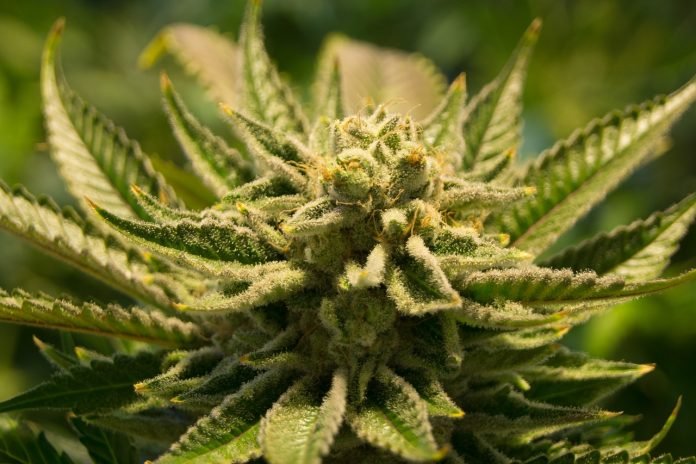
In a new study, researchers found the cannabis plant has pain-relieving molecules that are 30 times more powerful than Aspirin at reducing inflammation.
The discovery can help create a naturally derived pain treatment that offers pain relief without the risk of addiction of other painkillers.
The research was conducted by a team from the University of Guelph.
Currently, there’s a strong need to develop alternatives for relief of acute and chronic pain that go beyond opioids.
In the study, the team used a combination of biochemistry and genomics to determine how cannabis creates two important molecules called cannflavin A and cannflavin B.
Known as “flavonoids,” cannflavins A and B were first identified in 1985, when research found they provide anti-inflammatory benefits that were nearly 30 times more effective than Aspirin.
These molecules are non-psychoactive, and they target the inflammation at the source, making them ideal painkillers.
With the genomic information at hand, the team applied classical biochemistry techniques to verify which cannabis genes were required to create cannflavins A and B.
Their findings provide the opportunity to create natural health products containing these important molecules.
Currently, chronic pain sufferers often need to use opioids, which work by blocking the brain’s pain receptors but carry the risk of significant side effects and addiction.
Cannflavins would target the pain with a different approach, by reducing inflammation.
The team believes cannabis can help offer a new pain relief option.
The problem with these molecules is they are present in cannabis at such low levels, it’s not feasible to try to engineer the cannabis plant to create more of these substances.
The researchers are now working to develop a biological system to create these molecules, which would give them the opportunity to engineer large quantities.
The research team has partnered with a Toronto-based company, Anahit International Corp., which has licensed a patent from the University of Guelph to biosynthesize cannflavin A and B outside of the cannabis plant.
The lead author of the study is Prof. Tariq Akhtar, Department of Molecular and Cellular Biology.
The study is published in the journal Phytochemistry.
Copyright © 2019 Knowridge Science Report. All rights reserved.



